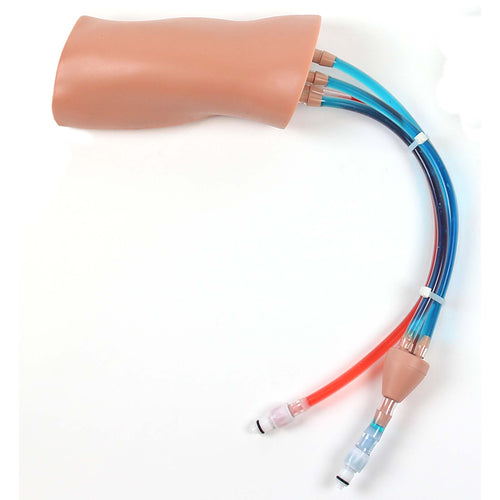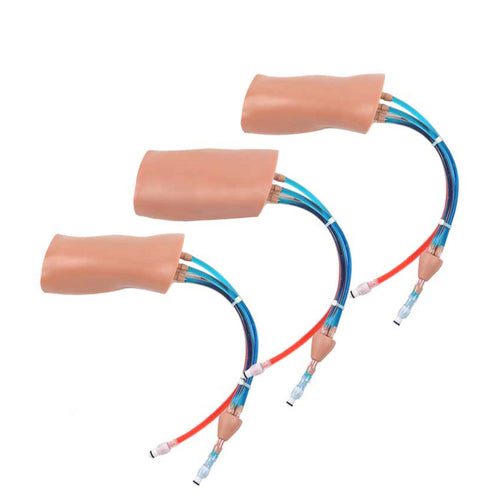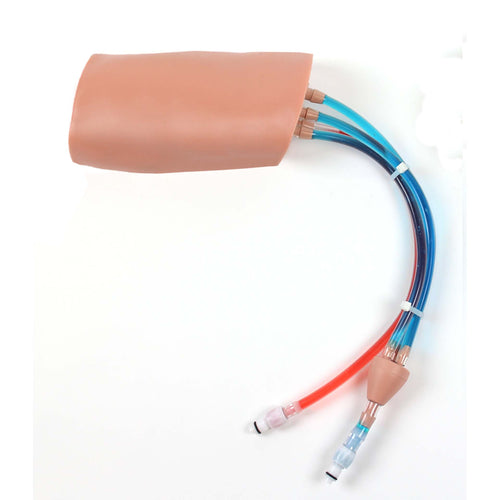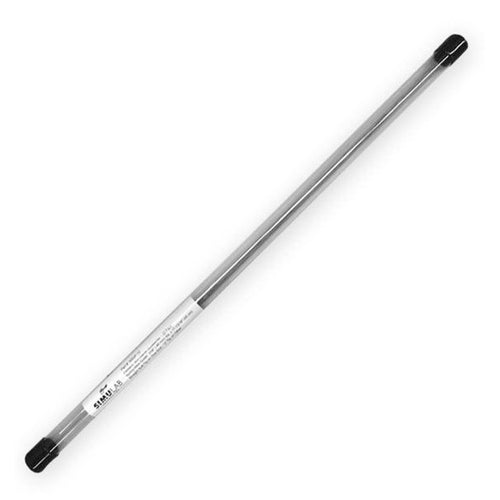PICCLineMan System
- Excellent for ultrasound-guided peripheral venous access hands-on training
- Anatomically correct human torso and partial right arm at 90-degree angle with landmarks
- Differentiate arterial and venous blood to present positive or negative results
- Positive flashback of simulated blood upon successful venous access
- Median Nerve is visible under ultrasound and adds realism in brachial vein access
- Self-sealing veins and skin for multiple cannulations
- Replaceable Normal, Obese or Geriatric tissue sets allow for multiple uses
- Arterial pulse and proper landmarks are present under real-time ultrasound to help avoid and detect errors
- Optional Articulating Head enhances realism and allows for team discussions of complications
Palpable Landmarks
- Antecubital Fossa
- Clavicle
- Sternum
- 1st-4th intercostal space
- Acromion
- Ribs 1-7
- Humeral Head
Ultrasound Anatomy
- Basilic Vein
- Brachial Vein
- Cephalic Vein
- Median Nerve
- Brachial Artery
- Humerus
PICCLineMan System
- PICC line procedure including guidewire insertion, dilation, and complete cannulation
- Peripherally Inserted Catheterization using Basilic, Brachial, or Cephalic Veins
- Normal, Obese, and Geriatric tissue options allow assessing patient variance in vessel depth and sizing
- Use ultrasound guidance during catheter placement
- Palpable anatomic landmarks clinically relevant for measuring catheter length
- Digital X-Rays provided to support the student's pathway in predicting optimum SVC tip position
PICCLineMan System
Size: 29" x 15" x 7.5"
Weight: 15 pounds



















